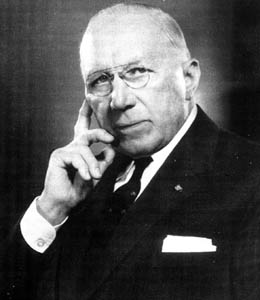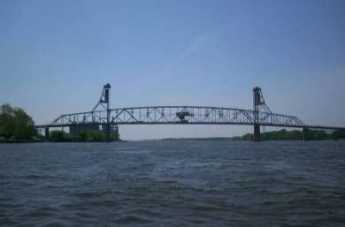Related Topics
Outlaws: Crime in Philadelphia
Even the criminals, the courts and the prisons of this town have a Philadelphia distinctiveness. The underworld has its own version of history.
Whither, Federal Reserve? (1) Before Our Crash
The Federal Reserve seems to be a big black box, containing magic. In fact, its high-wire acrobatics must not be allowed to fail. Nevertheless, it may be time to consider revising or replacing it.
Favorite Reflections
 In no particular order, here are the author's own favorites.
In no particular order, here are the author's own favorites.
Montgomery and Bucks Counties
The Philadelphia metropolitan region has five Pennsylvania counties, four New Jersey counties, one northern county in the state of Delaware. Here are the four Pennsylvania suburban ones.
Favorites - II
More favorites. Under construction.
Laundered Money

|
| Judge Edwin O. Lewis |
Judge Edwin O. Lewis finally got his way, the Pennsylvania State Government acquired four blocks of Chestnut Street stretching to the East of Independence Hall, and the Federal Government acquired four blocks stretching to the North. Judge Lewis was determined that a real revival of historic Philadelphia required the clearance of a lot of lands. Those who heard him describe it will remember the emphasis, "It must be BIG if it is to serve its purpose."
The open land is rapidly filling in but for a time the movers and shaker of this town had to scratch a little to find something to put there. That's fundamentally why the historic district has a Mint, a Federal Reserve, a Court Houses, a Jail, and a big Federal Building to house various local offices of the landlord, the federal government. It's where you go to visit your congressman, or to renew your passport, or to argue with the Internal Revenue Service. If you have certain kinds of business, there's an office for the FBI and the U.S. Secret Service. The mission of the Secret Service is a little hard to explain with logic.
The Secret Service is a federal police organization, charged with protecting the President of the United States, and enforcing the laws against counterfeiting money. In unguarded moments, the Secret Service officers will tell you they only have one function: to guard three-dollar bills. The President only comes to town from time to time, but the mandate extends to the President's family, and to the extended family of official candidates for election to that office. So, there is usually always a certain amount of activity relating to running behind limousines with one hand on the fender, or poking around rooftops near the speaker's platform at Independence Hall, or talking apparently to a blank wall, using the microphones hidden in their ear canals. The rest of the time is taken up with counterfeiters, but even then the excitement is only occasional, depending on business.
A few years ago, the buzz around the office was that some very good, even exceptionally good, fake hundred dollar bills were in circulation in our neighborhood. The official stance of The Service is that all counterfeits are of very poor quality, easily detected and no threat to the conduct of trade. Unfortunately, some counterfeits are of very good quality, not easily detected, and when that happens, The Service is made to feel a strong sense of urgency by its employers. These particular hundred dollar fakes were of very good quality.
One evening, a call came in. Don't ask me who I am, don't ask me why I am calling. But I can tell you that a very large bag of hundred dollar wallpaper has just been tossed over the side of the Burlington Bristol Bridge, near the Southside on the Jersey end. Goodbye.
Very soon indeed, boats, divers, searchlights, ropes, and hooks discovered that it was true. A pillowcase stuffed with hundred dollar wallpaper of the highest quality was pulled out of the river. By the time the swag was located and spread out for inspection, it was clear that several million dollars were represented, but they were soaked through and through. Most of the jubilant crew were sent home at midnight, and two officers were detailed to count the money and turn it in by 7 AM. The strict rule about these things is that all of the money confiscated in a "raid" was to be counted to the last penny before it could be turned over to the day shift and the last officers could go home to bed. After an hour or so, it was clear that counting millions of dollars of soggy wet sticky paper was just not possible by the deadline. So, partly exhilarated by the successful treasure hunt, and partly exhausted by lack of sleep, the counters began to struggle with their problem. One of them had the idea: there was an all-night laundromat in Pennsauken. Why not put the bills in the automatic drier, so they could be more easily handled and counted? Away we go.

|
| Burlington Bristol Bridge |
At four in the morning, there aren't very many people in a public laundromat, but there was one. A little old lady was doing her wash in the first machine by the door. It was a long narrow place, and the two officers took their bag of soggy paper past the old lady, and down to the very last drying machine on the end. Stuffed the bills into the machine, slammed the door, and turned it on. Most people don't know what happens when you put counterfeit money in a drier, but what happens is they swell up and sort of explode with a terribly loud noise. The machine becomes unbalanced, and the vibration makes even more noise. The little old lady came to the back of the laundromat to see what was going on.
As soon as she got close, she could see hundred dollar bills plastered against the window, and that was all she stopped to see. She headed for the pay telephone near the front of the door. The secret Servicemen followed quickly with waving of hands and earnest explanations, but within minutes there were sirens and flashing lights on the roof of the Pennsauken Police car. Out came wallets and badges, everyone shouting at once, and then everything calmed down as the bewildered local cop was made to understand the huge social distance between a municipal night patrolman and Officers of the U.S. Secret Service. Now, he quickly became a participant in the great adventure and was delegated the job of finding something to do with armloads of (newly dried) counterfeit hundred dollar bills. He had an idea: the local supermarket was also open all night, and they carried plastic garbage bags for sale. Just the thing. But who was going to pay the supermarket for the bags? Immediately, everyone was thinking the same thing.
Fortunately for law and order, the one who first suggested the the obvious idea of passing one the counterfeits was the little old lady. At that, everyone came to his senses. Wouldn't do at all, quite unthinkable. The local cop was sent off for the bags, relying on his ability to persuade the supermarket clerk. And, yes, they did get the money all counted by 7 A.M.
Originally published: Monday, June 26, 2006; most-recently modified: Wednesday, May 22, 2019